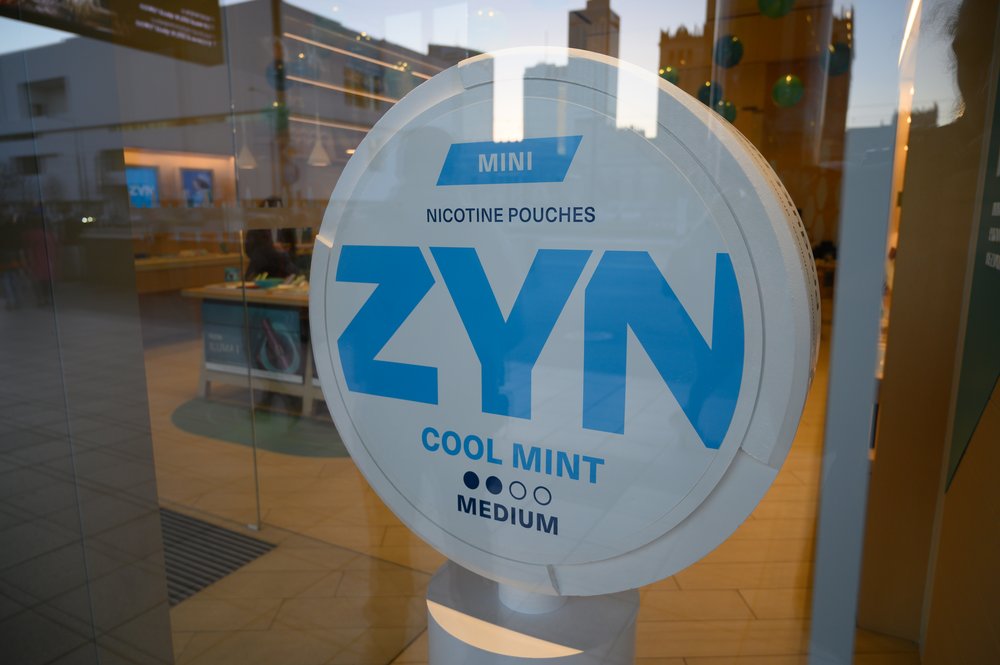New York won't ban Zyn flavored nicotine pouches after tobacco industry lobbying
April 17, 2025, 11 a.m.
An attempt to ban the beloved oral nicotine fix was quickly defeated after opposition from lobbying groups for the tobacco industry and convenience stores.

This column originally appeared in The Politics Brief, our new weekly newsletter on the people, power and policies that shape New Yorkers' lives.
Sign up to get the full version where you can ask questions, share news tips and weigh in on the conversation. Hits inboxes on Wednesdays.
Your flavored Zyn nicotine pouches are here to stay in New York — at least for now.
The feds have already banned flavored cigarettes. New York state and city both ban flavored vape products. And a state bill from two Democratic lawmakers from Manhattan would add flavored nicotine pouches — the increasingly popular product you place between your gums and lip — to the list.
For a moment last week, the proposal was on the verge of a breakthrough — until, suddenly, it wasn’t.
“I think there was some misinformation or disinformation, some intense lobbying by the tobacco lobbyists against the bill and a misunderstanding of what the bill would do,” state Assemblymember Linda Rosenthal told Gothamist.
Here’s how it all went down.
Rosenthal and state Sen. Brad Hoylman-Sigal, both Manhattan Democrats, sponsored a bill that would ban most flavored pouches aside from menthol, with the idea being they could easily be marketed to kids. These come in flavors like “coffee” or “citrus.” Flavorless pouches would still be allowed.
The legislation made it onto the Assembly Health Committee’s agenda last week — a key sign it could be inching its way toward consideration from the full Assembly. But just before the vote, committee Chair Amy Paulin pulled it from the agenda.
Why? Officially, Paulin said the U.S. Food and Drug Administration recently authorized certain Zyn products for marketing. The companies behind the nicotine pouches are still not allowed to market to kids — and Paulin said the committee decided it would give them a chance to comply before the state takes action, according to New York StateWatch, a tracking service that monitors committee meetings.
But Rosenthal pointed to two other issues. One, a few committee members were absent, which complicated the vote. And two, the bill attracted a big lobbying push from tobacco companies, convenience stores and business groups, all of whom wanted to see it killed.
Among the organizations that lobbied against the bill were Philip Morris International, the tobacco giant behind Zyn, and some of its competitors; including Swisher International, which makes Rogue pouches; and RAI Services, which makes Velo. The state Association of Convenience Stores, which represents 1,600 stores across the state, also fought the bill.
"Prohibition doesn’t work,” said Alison Ritchie, the lobbying group’s president. “New York should know that better than anyone. Lawmakers pushing this ban have lost touch with the realities facing everyday New Yorkers.”
But New York City has found success with prohibition: When former Mayor Mike Bloomberg banned smoking in public places in 2003, about 22% of New Yorkers smoked, according to the city health department. The rate was down to 8% in 2023.
Rosenthal says she’ll try again to get the bill passed later in the year. The state Legislature’s annual session runs through mid-June.
Listen here
We want to hear from you
Do you think New York should ban flavored Zyn pouches? Share your thoughts here. We'll share responses in next week's newsletter. (Sign up!)
This week in New York Politics
- The state budget is more than two weeks overdue. Are they getting any closer to a deal on the state's criminal discovery laws?
- The New York City Council filed a lawsuit Tuesday against Mayor Eric Adams over his administration’s decision to allow ICE agents on the Rikers Island jail complex.
- “Do not attempt to remain in the United States — the federal government will find you.”
– U.S. Department of Homeland Security's warning to immigrants in New York - A group of NYC councilmembers are pushing to end the city’s composting mandate days after it began.
- Listen: How Trump's climate cuts will affect New York City (“The Brian Lehrer Show”)
- The MTA says congestion tolls deterred an average of roughly 82,000 vehicles from entering Manhattan below 60th Street each day in March.
- Cuomo spent $452 million on equipment to fight COVID, but only distributed three items.